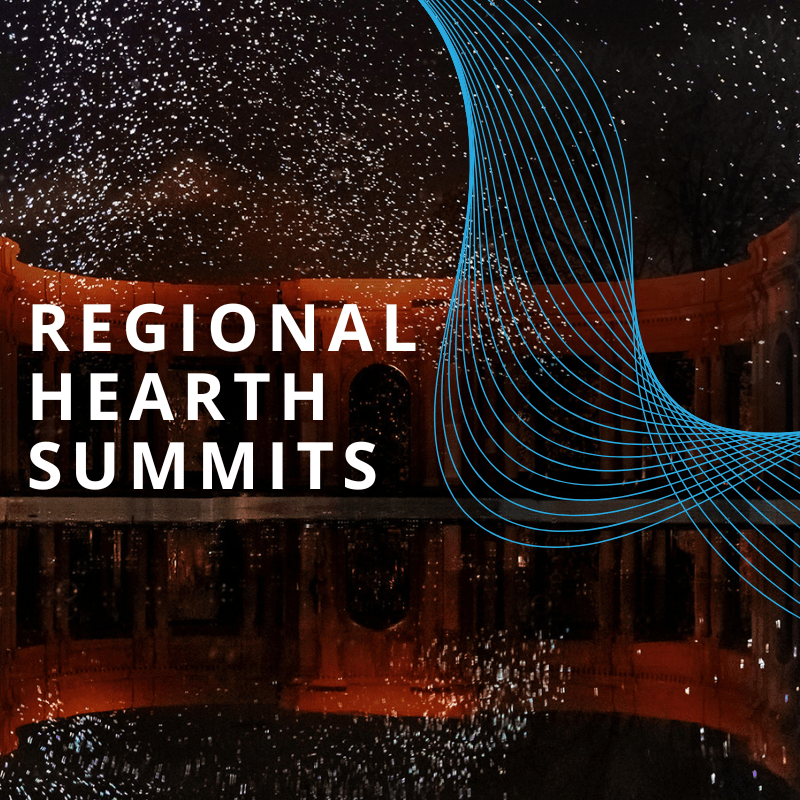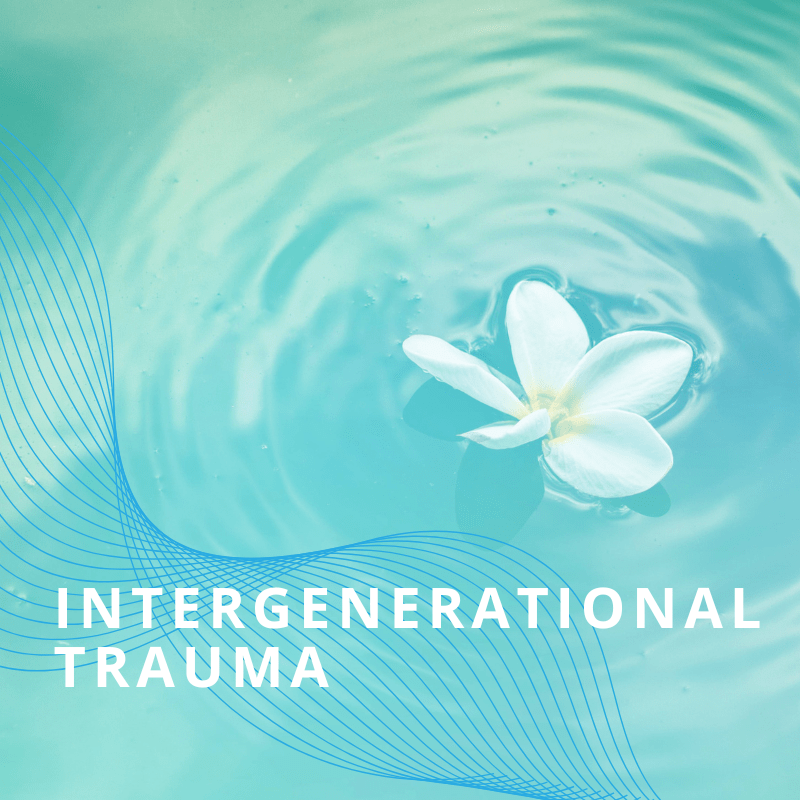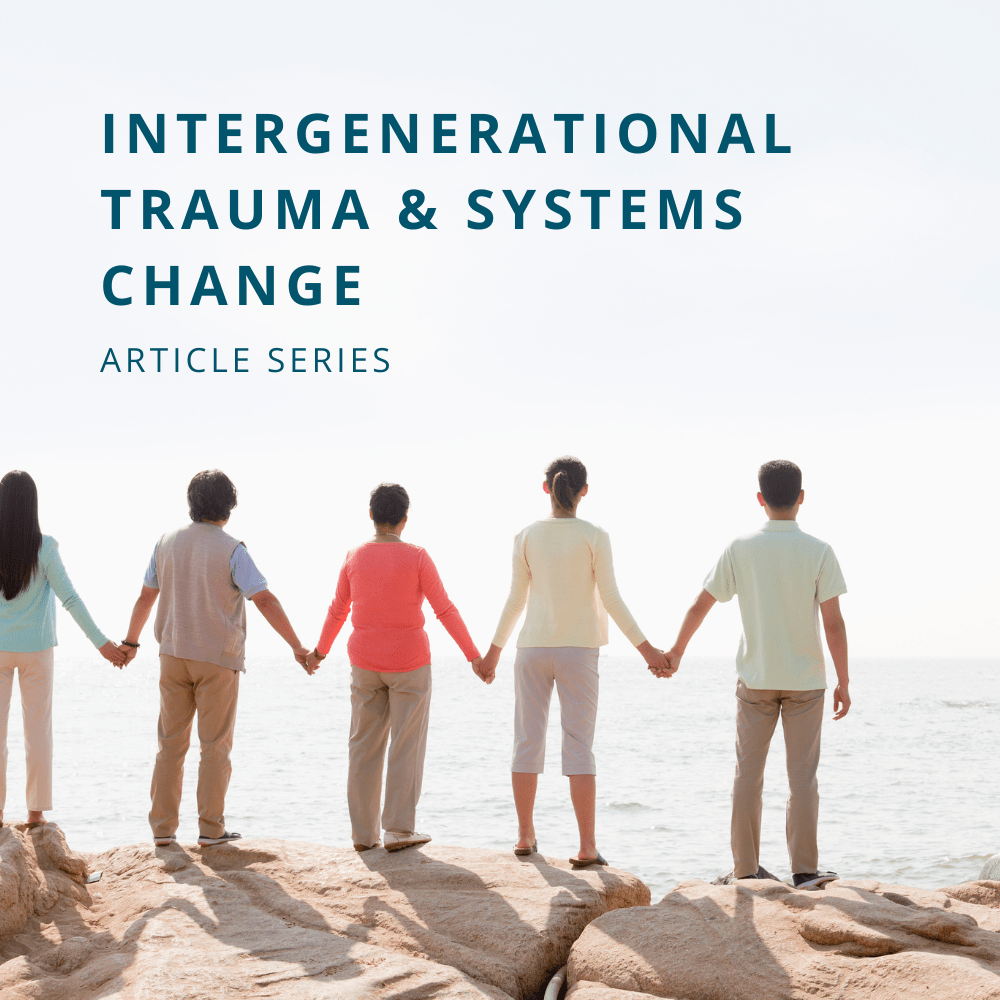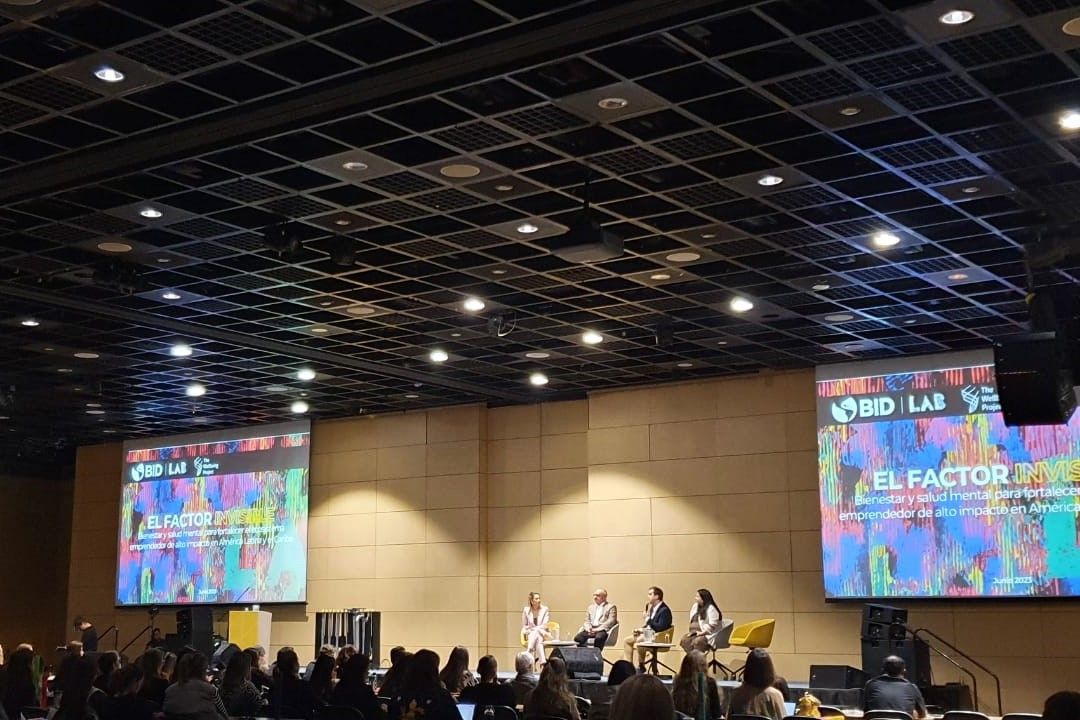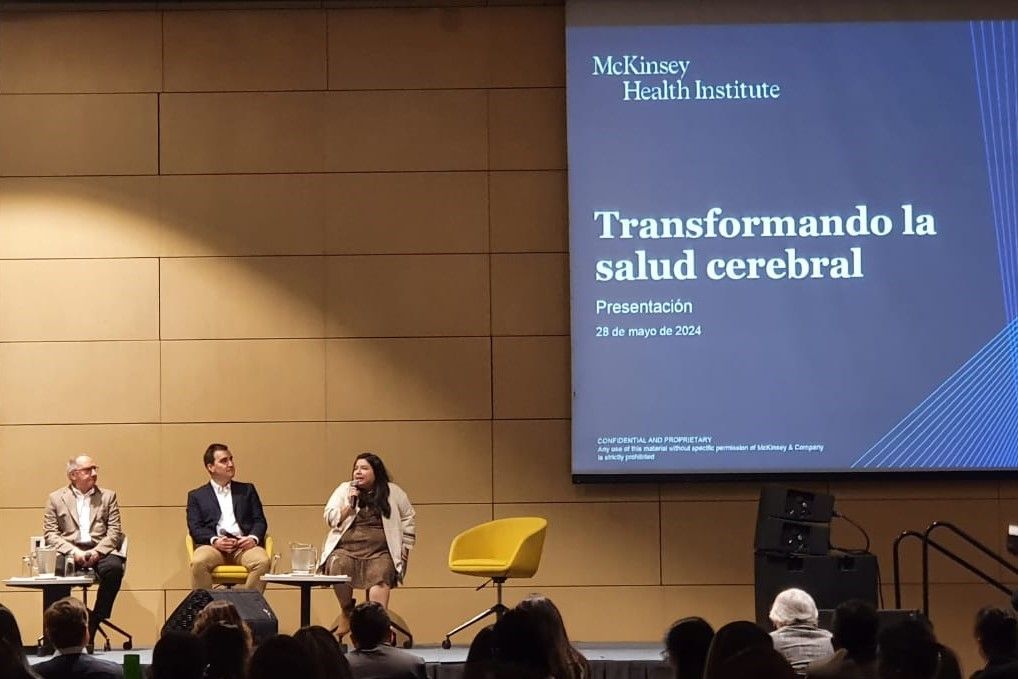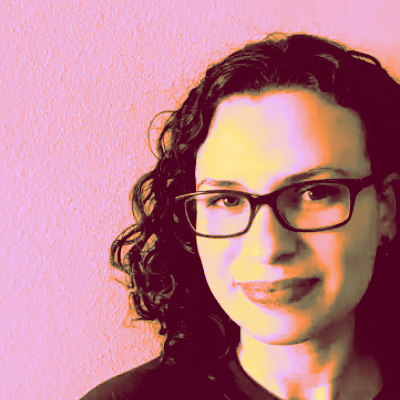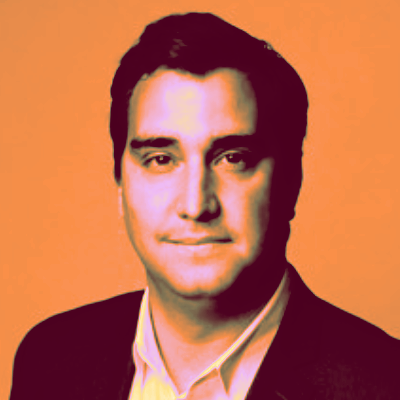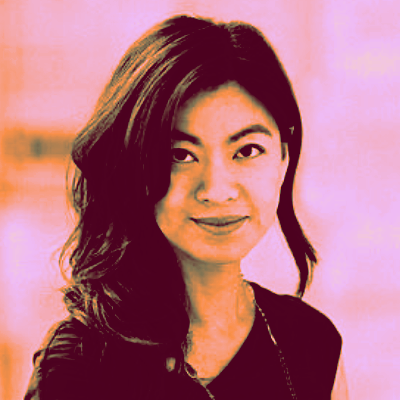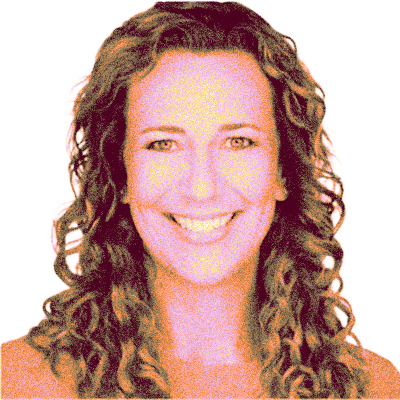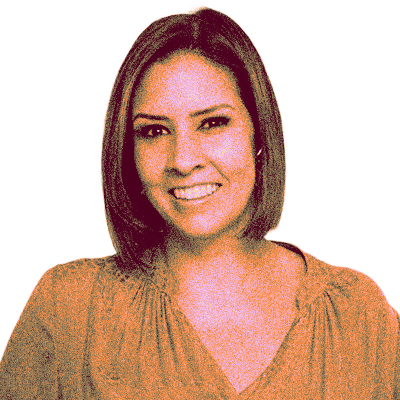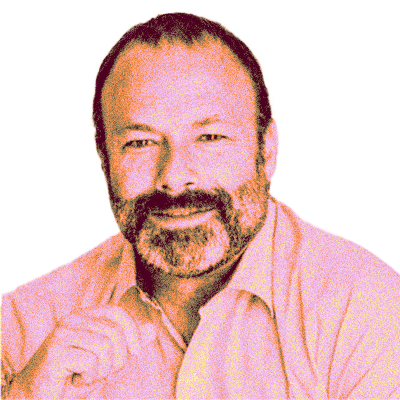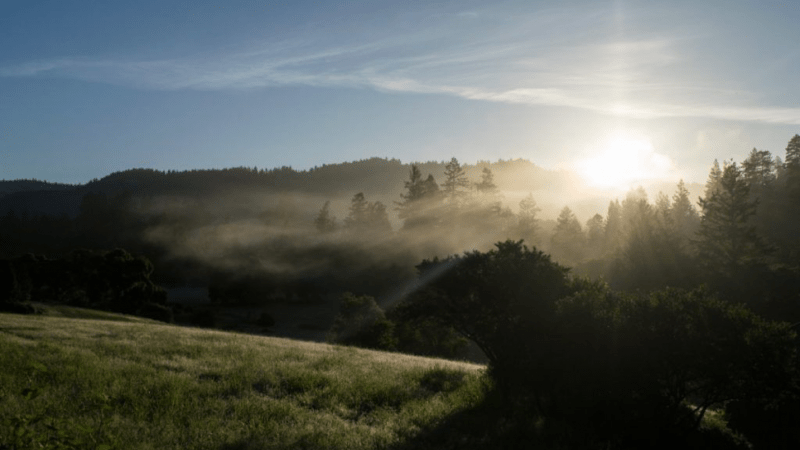
Interconnected Healing From Intergenerational Trauma Interconnected Healing From Intergenerational Trauma
Healing x Regional Hearth Summits
With a growing collective consciousness about the impacts of intergenerational trauma, the regional Hearth Summits are a space for changemakers to explore those impacts in the social change sector. In social change work, trauma can be found at the roots of the biggest challenges facing the world today—and in the lives of the people working to address them. Trauma-informed approaches to social change have the power to help unlock healing, wellbeing, and social transformation for all. The regional Hearth Summits offer an invitation for local communities of changemakers to explore this power, contributing to our global call to move from cycles of trauma to journeys of wellbeing.
Discover how the Hearth Summits’ deep conversations, moving art performances, and embodied workshops create a platform for us to encourage healing and wellbeing for everyone—everywhere.
COLLECTIVE HEALING FOR SYSTEMIC CHANGE COLLECTIVE HEALING FOR SYSTEMIC CHANGE
“It’s when we start working together that the real healing takes place.”
David Hume

Opening a Dialogue on Intergenerational Trauma
Research From the Being and Transforming Think Tank
In Brussels, The Wellbeing Project launched the first part of “Cycles of Trauma and Journeys of Wellbeing: A Framework for Trauma-Informed Practices and Positive Social Change” — the first co-creation from the Being and Transforming Think Tank’s 3-year exploration of intergenerational trauma and social change. The research was published on the Think Tank’s brand-new hub for research, stories, tools, and other resources about IGT and trauma-informed social change work. Changemakers are invited to explore the database of resources and add to it.
Intergenerational Trauma, Ancestry, and Race | Trauma Intergeracional, Ancestralidade e Raça
Session From Hearth Summit São Paulo
In São Paulo, Raquel Barros, Coordinator, Emotional Collaboration Laboratory (ENLACE) and the Possible Worlds Community Extension Program, FACENS University, and Isabel Santos Mayer, Coordinator, Brazilian Institute of Studies and Community Support (IBEAC), joined in a conversation on intergenerational trauma, ancestry, and race in Brazil. Watch the session (in Portuguese).
Katherine Milligan, Director of the Collective Change Lab, educated changemakers on the basics of trauma’s physiological effects on the body, including how the central nervous system initiates the fight-flight-freeze response, and leading changemakers in embodied practices.
Shawan Mahmud, daughter of intellectual martyr Altaf Mahmud, touched souls with her tale of healing from intergenerational trauma in the aftermath of the 1971 Bangladesh Liberation War, calling for accessible mental health services to support all who struggle with the ongoing impacts of the war.
Human rights activist and political refugee Marguerite Barankitse shared her inner and outer journey of peacebuilding after surviving ethnic cleansing campaigns in her home country of Burundi and starting an organization, Maison Shalom, to care for orphaned children.
Psychologist Edgar Gonzalez-Hernandez hosted a workshop on Compassion-Based Cognitive Therapy for participants in Bogotá in a session on how to recognize and start healing from trauma through an evidence-based approach.
Wellbeing Is Community, Resilience, and Inclusion
Interview With Okong’o Kinyanjui
In this interview at the first regional Hearth Summit in Nairobi, meet Okong’o Kinyanjui, Founder and Executive Director of the Queer African Network, as he shares how wellbeing inspires welldoing in his work to support the queer Pan-African community, whose wellbeing continues to be impacted by colonial-era penal codes across Africa.


Mapping the Impacts of Colonialism in Latin America
Workshop with Dr. Laura Calderon de la Barca
In Bogotá, psychotherapist Dr. Laura Calderon de la Barca, a specialist in collective trauma and senior associate of the Collective Change Lab, led changemakers in a reflection mapping the ongoing impacts of colonial history in Latin America and the Caribbean. Changemakers identified the parts of society where the trauma of colonialism is still visible as well as where they see opportunities to act for healing. As a group, they saw trauma manifesting the most within gender dynamics, and they saw the biggest window of opportunity for action in the arts.
You can learn more about Dr. de la Barca’s work to raise the collective consciousness around colonial trauma in the region in our recent webinar series with Collective Change Lab on creating healing systems for social change.
Addressing Post-Genocide Trauma in Rwanda
INTERVIEW WITH DR JEAN BOSCO NIYONZIMA
Director and Executive Founder of the Ubuntu Center for Peace, Dr. Jean Bosco Niyonzima, spoke at The Wellbeing Summit Dakar-Thiès about the impact of intergenerational trauma in Rwanda, where more than 50% of genocide survivors live with mental health disorders like depression. Listen to this brief interview with Voice of America to hear about his approach to mobilizing an integrated, scalable, cost-effective, community-based social healing model across Africa.
In Nairobi, co-chair Honorable Justice Martha K. Koome, EGH explored justice as a shared responsibility and lived experience, requiring empowered individuals, accessible courts, and support for the marginalized. Critical issues discussed included addressing the overrepresentation of people with disabilities in prisons, reducing stigma, and decolonizing the justice system to promote restorative justice.
In Senegal, Safe Open Spaces (SOS) hosted small group sessions to promote emotional expression, active listening, and empathy among changemakers. Focusing on youth mental health, the SOS workshop offered practical skills to young changemakers to use for healing and personal growth.
The intergenerational wellbeing panel in Nairobi, chaired and moderated by Edwin Macharia, explored how individuals, families, and communities are interconnected and shape our collective ecosystem. The session explored how traditional methods can address community trauma and bridge generational gaps by preserving cultural knowledge and fostering overall wellbeing.
Healing From Trauma: The Leadership Skill You Didn’t Know You Needed
INTERVIEW WITH BENOIT LEGRAND
Leaders face challenges every day when managing teams and making decisions. But visionary business leader-turned-psychogenealogist Benoît Legrand says the biggest challenge can actually be an internal one. Hear from Benoît, who spoke about the impacts of intergenerational trauma in leadership and organizational wellbeing at The Wellbeing Summit Brussels, reflect on why leaders should prioritize their wellbeing and healing to be a positive presence for themselves, their teams, and their organizations.
PROCESSING TRAUMA AND HEALING THROUGH THE ARTSPROCESSING TRAUMA AND HEALING THROUGH THE ARTS
“At the deepest level, the creative process and the healing process arise from a single source.
When you are an artist, you are a healer.”
Rachel Naomi Remen
“Tears Ain’t Nothing But Liquid Prayers”
Poetry by Hannah L. Drake
Author, poet, and activist Hannah L. Drake stirred the emotions of her audience at The Wellbeing Summit Omega Institute-Harlem Wellness Center with her poem “Home,” a rebuttal to the state song of Kentucky (where she is from), “My Old Kentucky Home.”
Brilliante Aurora
Music by Oro y Platino
The alabaos are traditional Afro-Colombian funeral songs used to express and share grief and mourning that have been passed down generation to generation. Enjoy this song performed by Oro Y Platino, a group from the Condoto Chocó region of Colombia, who also took to the stage at The Wellbeing Summit Bogotá. All alabaos songs help people to say goodbye to their beloved. “Brillante Aurora” is about saying goodbye to a mother — with the song lyrics, they say goodbye to the Virgin Mary.
The Healing Power of MusicThe Healing Power of Music
MUSIC BY ASIF IQBAL AONTU
At The Wellbeing Summit Dhaka, we discovered musician and journalist Asif Iqbal Aontu’s extraordinary journey from imprisonment to musical soul healing. Through his music, he shares how his toughest experiences led him to a new direction, blending music with cosmic thoughts. With each song, he skillfully intertwines life’s tragedies, pains, and afflictions into a harmonious tapestry.




